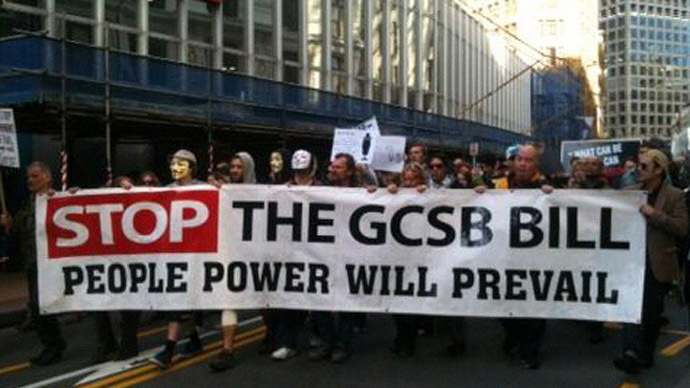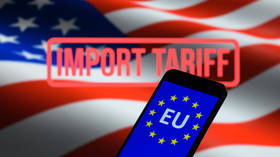Hackers threaten to reveal secrets of New Zealand MPs behind snooping bill

The Anonymous hacker group has threatened to post New Zealand MPs’ secrets online after the country’s parliament passed an NSA-style spying bill. It follows a hack by the group against the NZ government that took out the Kiwi secret services’ website.
In an interview over an encrypted link with New Zealand newspaper
the Herald, the hacktivist group said they would target the
politicians responsible for a so-called snooping bill. The group
said they were giving the MPs a chance to prove to the NZ public
that they had nothing to hide.
"Releasing such personal information sends a message that
they're not very hard to find, they aren't the only ones who can
gather intelligence,” a representative of Anonymous said.
The hacktivist organization knocked out the Government
Communications Security Bureau’s (GCSB) website on Friday in a
denial-of-service attack. In the interview with the Herald, the
group said the cyber-attack was merely a distraction that masked
another hack to obtain secret data.
Anonymous is opposing an amendment that was passed by the New
Zealand parliament on August 21. The legislation would grant the
GCSB – New Zealand’s equivalent of the NSA – new powers to
support the country’s police, Defense Force and Security
Intelligence Service.
Opponents of the controversial bill have criticized the
legislation as ambiguous, and say it could open the door to
NSA-style surveillance. Anonymous has characterized the bill as
“an unadulterated violation of human rights, constitutionally
illegal, and an invasion of the people's privacy.”
They have also criticized NZ Prime Minister John Key, who
championed the bill, for failing to stand up to the US.
The GCSB confirmed the hack attack Friday, but rejected the
claims that classified data had been taken.
The debate over the GCSB’s new powers triggered a number of mass
protests, with three quarters of New Zealanders
“concerned” by the amendment, according to a survey by
Fairfax Media-Ipsos.
However, Key has rejected criticism of the bill as fueled by
“misinformation” and “conspiracy” fears stirred up
by the country’s opposition. He has trenchantly defended the bill
as necessary to protect the country’s cyber-security in the face
of various threats.
"There will be times where a serious cyber-intrusion is
detected against a New Zealander and the GCSB will then need to
look at content – that's why the law allows that. But that should
be the end point, not the starting point," Key said.
One of the most vocal members of the NZ opposition, Kim Dotcom,
founder of MegaUploads, said the so-called threats were
“imaginary” and a justification for “a radical
termination of our basic rights.”
Last January New Zealand police stormed Dotcom’s mansion in
Auckland, seizing digital material and other assets. A judge
later ruled that the raid was illegal. Since then Dotcom has
accused the New Zealand government of collaborating with the US
secret services.















